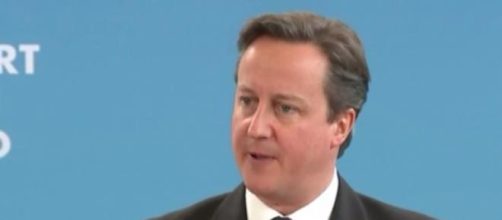As the general election approaches, the Conservative Party has now begun to set out its proposals for education reform. However the party's choice to frame its ideas in the language of 'war on mediocrity' and 'war on illiteracy' has managed to set an adversarial tone to the debate. As the Sunday Times revealed on February 1st, the education secretary Nicky Morgan has declared that all 6 year pupils must be able to recall all times tables; be able to perform long division and complex multiplication; and be able to read a novel before they leave primary school. If any child fails any of these requirements, head teachers face losing their jobs.
A large proportion of pupils may well be capable of achieving these targets, but as various education professionals have responded in the ensuing days, the notion that every single child will be able to pass them is simply laughable. Not only does it fail to take into account a margin of error - both for pupils on the day of their test, and for those who mark the tests - but even if the pass rate was 99% head teachers would be losing their jobs in droves.
In continued antagonistic form, the prime minister David Cameron in a speech on Monday, 2nd January announced that schools rated by Ofsted as 'requires improvement' or 'inadequate' would automatically be considered for academy status if not demonstrating the capacity to improve. Currently, only those rated as inadequate by Ofsted face this process. Cameron's adversarial delivery of this ultimatum infers that, no matter how much he might deny it, he is aware that this may be perceived as more threat than promise. In any case, according to the House of Commons Education Committee report published on January 27th this year, there is no firm evidence that conversion to academy status automatically confers improvement.
Although Cameron delivered the proposals on protecting school funding in fairly upbeat phrasing, he did not admit until pressed, that there would be no inflation-linked increases. Sam Freedman, of the education charity Think First, calculated that this could result in an overall cut in real terms of around 10%, depending on the rate of inflation. This has not been received well by schools with already-stretched budgets.
The problem framing this entire set of proposals is that they assume a default position of conflict between Westminster and the education sector. Our schools aren't good enough, runs the narrative, so we will impose a tighter regime of threat and punishment in order to improve them. At the same time we will restrict resources for equipping schools, but the extra pressure will enable teaching staff to pull brilliant new budgeting strategies out of the hat. However, teaching is an inherently creative profession that requires huge amounts of energy. Perhaps a little relief from threats of management change, the demanding regime of targets and Ofsted inspections may restore some energy and enable creativity to flourish. It may go unrecognised, but the environment that Westminster creates in the way it engages with schools, filters right down from headteacher, to staff, to the pupils. The Conservative Party needs to ask itself, now, whether it really wants our children to learn in a war zone.

